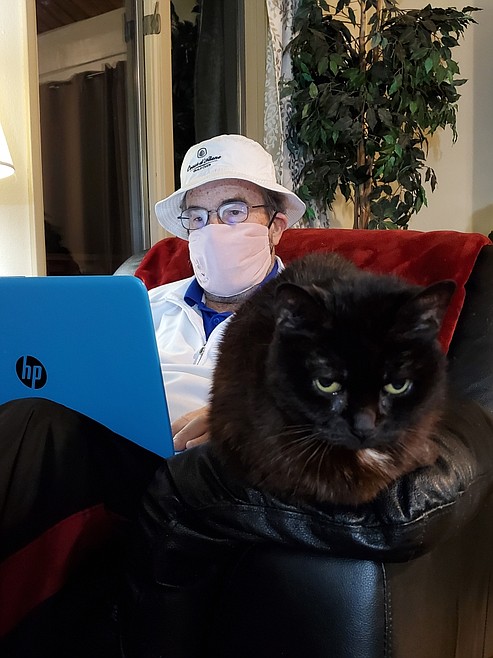STEVE CAMERON BLOG: Surviving a social recession
Still here.
Just 24 hours ago, I wrote about laughter and humor in the face of potential tragedy.
I suspect the fact that I’ve always been able to do it, even when stuck alone, is truly a gift.
Unfortunately, there’s a flip side to that coin – people who not only struggle with loneliness, as many are at the moment, but whose lives can become miserable, or even...
Cut short.
Just as we headed into lockdown in late March, there was a meaningful article by Robin Wright in The New Yorker magazine.
It was titled: “How Loneliness from Coronavirus Isolation Takes Its Own Toll.”
In the story, it was hard to miss this passage...
“Science shows us that anxiety and isolation exact a physical toll on the brain’s circuitry.
“They increase the vulnerability to disease — by triggering higher blood pressure and heart rates, stress hormones and inflammation — among people who might otherwise not get sick.”
Our current shelter-in-place order comes at an interesting time (if you can call it that).
In the United States just a year ago, 28 percent of households had just one occupant, the highest percentage ever.
You might think living alone makes a person prepared, even pleased, with orders to stay home.
Surveys claim otherwise.
They’re correct.
I live alone for a good portion of the year, and just a few weeks into this isolation, I’m sick of it and want to get out – to see friends, to meet for coffee, all those day-to-day things that we’re now missing.
Barbara Mace-Tucker, a licensed social worker in Coeur d’Alene, has clients who are struggling with this lockdown.
What can she tell them?
“The first thing is that you have to TRY to change your attitude,” Mace-Tucker said.
“It’s not an easy thing to do, but you have to work at it, because all the positive changes that might improve your life will come with that.”
And for those who fight to achieve a better attitude toward their everyday existence, but struggle or fall?
“I tell people that if they don’t hang on to anything else, remember three words: hope, purpose, passion.
“You have to have hope, wherever you find it. From there, what is your purpose? And then, live it with a passion.”
Mace-Tucker acknowledges the difficulties with each of the steps she suggests, but also reminds the people who come to her that the rewards for turning things around are both wonderful and life-affirming.
Such changes also can be deemed necessary.
In that New Yorker article, it was noted that in 2015, Julianne Holt-Lunstad, a neuroscientist and psychologist at Brigham Young University, published an analysis of 70 studies involving 3.4 million people, examining the impact of social isolation, loneliness, and living alone.
The results were notable in light of today’s pandemic.
The review found that loneliness increased the rate of early death by 26 percent; social isolation led to an increased rate of mortality of 29 percent, and living alone by 32 percent — no matter the subject’s age, gender, location, or culture.
“Keep in mind, this is looking at chronic effects over time,” Holt-Lunstad said.
“What we are experiencing now is a disruption in our usual pattern. We all hope this is temporary and not something that will become a more chronic state.”
But Holt-Lunstad also cautioned that coming out of an enforced situation is not easy.
“When we get out of a habit, it’s hard to get back in,” she said.
“So, just like we’re worried about an economic recession, we should worry about a social recession — a continued pattern of distancing socially, beyond the immediate pandemic, that will have broader societal effects, particularly for the vulnerable.”
It’s a real worry.
And the responsibility for helping friends and neighbors (and ourselves) to find a comfortable spot when this is over clearly falls...
On all of us.
You’re welcome to join the blog. Any time, on any subject. Or with any opinion that doesn’t get us sued.
scameron@cdapress.com
Facebook: Steve Cameron

